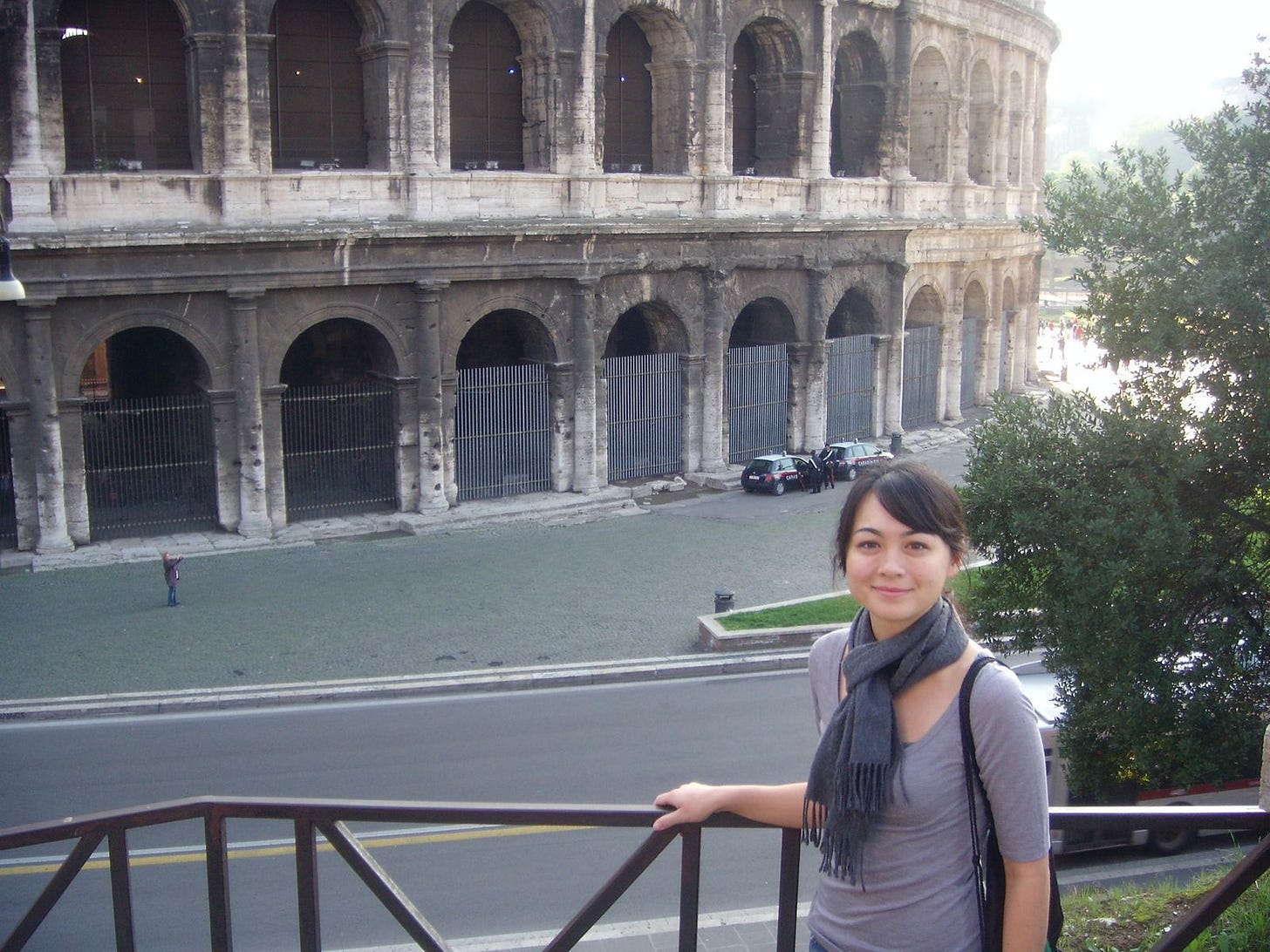Vorfreude (German)
At some point in my twenties, I was looking for a distraction from a recent breakup and found myself in the travel section of a Barnes & Noble on a Sunday evening. I thumbed through the pages of places I always dreamt of visiting but feared I would never get the chance to see. The cliffs of Ireland. Mount Fuji in Japan. The rainforests of South America. I pulled a pocket-sized book out from the shelf — the Little Black Book of Rome — and looked at the colorful map of neighborhoods and the quaint descriptions of restaurants, dreaming of a day when I’d get to visit them in person. Why not now? I thought.
I bought the book. And for the next twelve months, I saved and planned for a solo trip to Europe. For a young, quiet girl who had never really left her hometown (and didn’t yet live in a time when Google Maps was a thing), it was kind of a scary thing to do. But I wanted to “find myself” on this trip. It’s what the movies told me would happen. Maybe I would meet a hitchhiker. Or find myself driving a stolen car. Or elope with a stranger and have some kind of fascinating story to tell at dinner parties for the rest of my life.
Of course, none of that happened. In reality, I ate a lot of pasta and walked around the Colosseum. I took too many pictures of the Tower of London. In Santorini, I went on a dizzying cliffside bus ride to witness a gorgeous sunset in Oia, then threw up right after I stepped off the bus. It was a fun trip, and it made for some funny stories, but I can’t really say I found myself. Whatever that even means.
When I think back to that time in my life, I don’t think about the trip itself, but the time I spent planning it: Staying up late to read about ancient Roman history. Trying to learn a bit of Italian during my drive to work. Saving every penny so I could afford to go in the first place. I didn’t “find myself” in Europe, but I did discover some things about myself in the process of planning for it — that I was more resourceful, independent, and determined than I thought I was at the time. That year of my life felt exciting and joyful because I was working toward something I expected to be exciting and joyful.
"Vorfreude" is a German word that describes this feeling. It’s the joyful anticipation that comes before experiencing something delightful. It’s a well-documented phenomenon. Research finds that people enjoy preparing for vacations more than actually taking them, for example. I’ve experienced this same thing over and over in my life. With a few notable exceptions, the thing I’m looking forward to is never as good as the looking forward to it.
What can vorfreude teach us? It would be easy to say the takeaway is about being more present. That “life is a journey, not a destination.” It’s easy to reduce its lesson to something like, “Live in the moment!” Or whatever other aphorism you’ve heard about focusing on the here and now. But vorfruede is impossible without thinking about the future. We experience “pre-joy” about a vacation precisely because we are excited about how joyful we’ll feel on vacation. Sure, we’re very likely overestimating how much fun we’ll have, like the way I overestimated how life-changing my solo trip would be. But why remind ourselves that we’re overhyping the future? We’d miss out on vorfruede entirely.
For all of the talk about being present, there seems to be a crucial insight missing from the conversation: that sometimes enjoying the present means looking forward to the future. Yes, the lives we can plan are too small for us to live. But it’s also the planning — and the anticipating — that makes our lives feel big.
From the archives
Why You Should Learn to Say ‘No’ More Often (NYT, 2017) Humans are social animals…the word ‘no’ feels like a confrontation that threatens a potential bond.
What’s new?
A few times a week, I pass by a vacant, boarded-up building in my city. I recently learned it’s an old YWCA building, designed by Julia Morgan.
Speaking of untranslatable: A Little Language by Robert Duncan
I really enjoyed this two-part series that my Hidden Brain colleagues produced. It’s about the benefits of savoring.
— Kristin





Oh and I am also a fan of Hidden Brain, and was really glad to listen to two episodes spent on the topic of savoring 🌿
I love this word! And thanks for the link to the poem